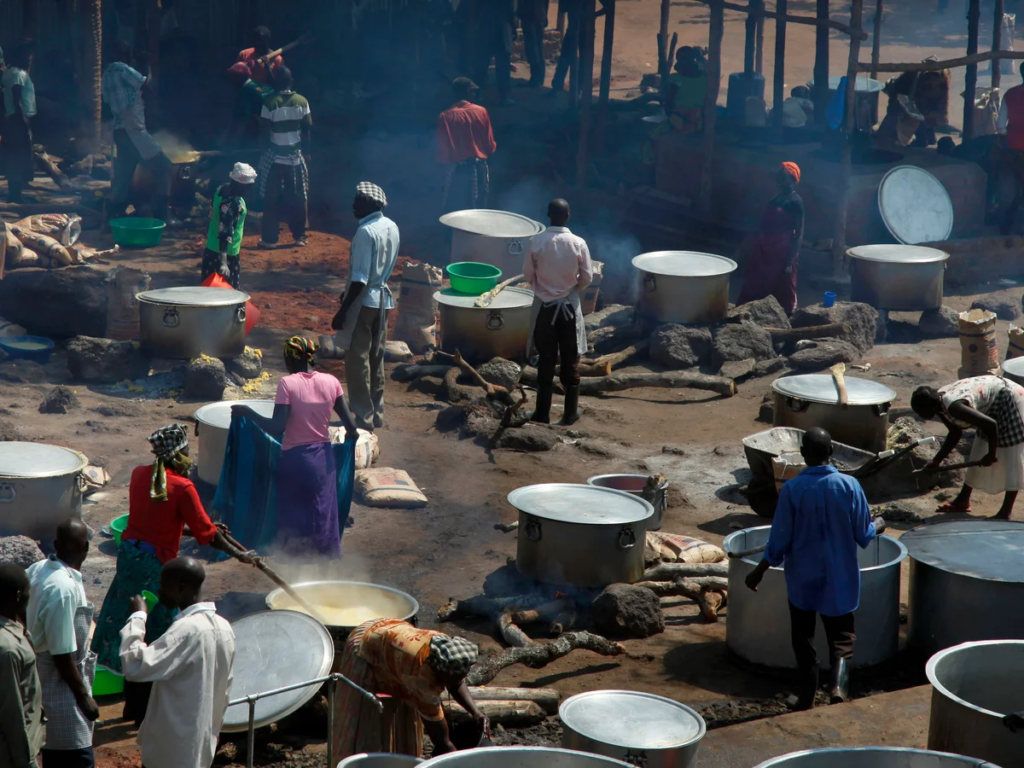Introduction
Over one million refugees in Uganda are facing severe food shortages after the suspension of vital rations. The United Nations World Food Programme (WFP) has cited a major funding shortfall, pointing to the aftershocks of U.S. foreign aid cuts enacted during Donald Trump’s presidency. As Uganda continues to host the largest refugee population in Africa, the consequences of dwindling support are devastating.




1. Food Rations Halved or Stopped Entirely
The most immediate effect is the reduction or complete halt in food distributions to camps across Uganda. With 1 million refugees now without consistent food access, malnutrition rates are expected to rise dramatically. Many families rely solely on this aid for survival.
2. Trump’s Foreign Aid Cuts Undermined Global Relief
In 2018, the Trump administration proposed steep reductions in foreign aid budgets, including slashing contributions to the United Nations and humanitarian agencies. These cuts created a domino effect, leaving long-term refugee programs chronically underfunded.
3. Uganda’s Generous Refugee Policy Strained
Uganda is praised for its open-door refugee policy, granting displaced people the right to work, move freely, and access public services. But this progressive model relies heavily on international donor funding—now alarmingly scarce.
4. Children Most at Risk of Hunger
Over 60% of refugees in Uganda are children. The reduction in food supplies disproportionately affects their development, education, and health. With no school meals and limited household food, undernourishment is growing.
5. Donor Fatigue Compounded by U.S. Retreat
While some nations have stepped up aid, donor fatigue—worsened by U.S. disengagement—has reduced overall contributions. Agencies like the WFP have been forced to make impossible choices between regions and crises.
6. Rising Tensions Within Host Communities
With aid dwindling, tensions between refugees and Ugandan host communities are increasing. Competition over scarce resources such as food, water, and healthcare services could lead to social unrest and instability.
7. Long-Term Development Goals in Jeopardy
Trump’s aid cuts didn’t just affect emergency rations—they undermined programs aimed at self-reliance and sustainability. Skills training, agricultural support, and education initiatives for refugees have been scaled back, threatening Uganda’s long-term humanitarian development efforts.
Conclusion
Trump’s foreign aid policies continue to reverberate globally, with Uganda’s refugee crisis serving as a stark example. Over a million people are now on the brink of a humanitarian disaster due to funding shortfalls tied to previous U.S. decisions. As the world watches, the need for renewed international commitment—and accountability—has never been clearer.
Want to learn more? Read our article on how U.S. foreign policy affects global aid and what you can do to support refugees worldwide.








